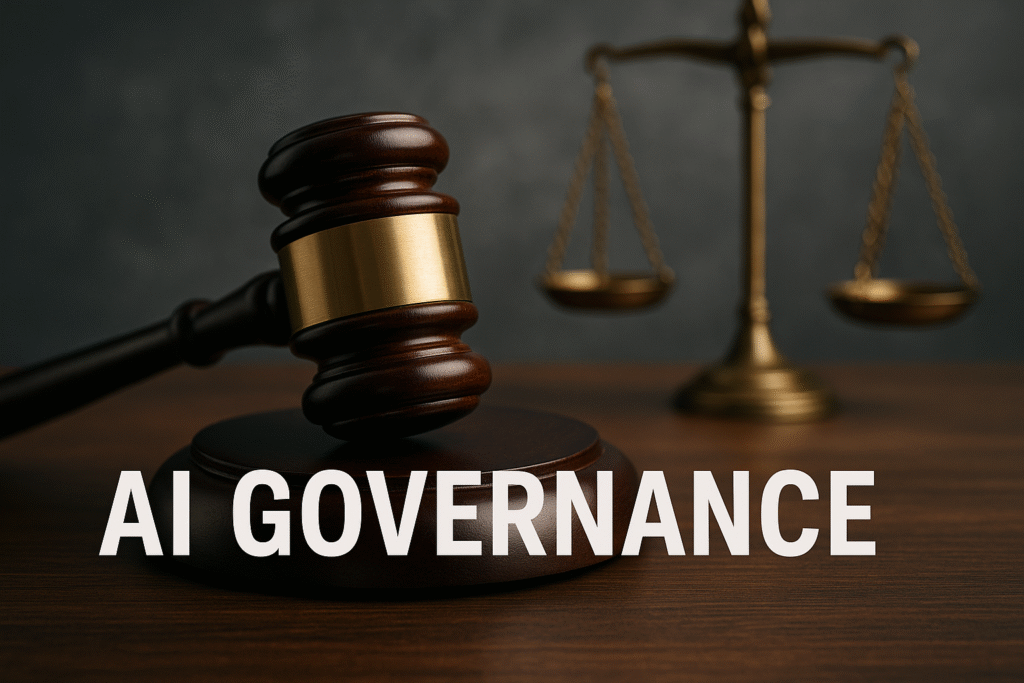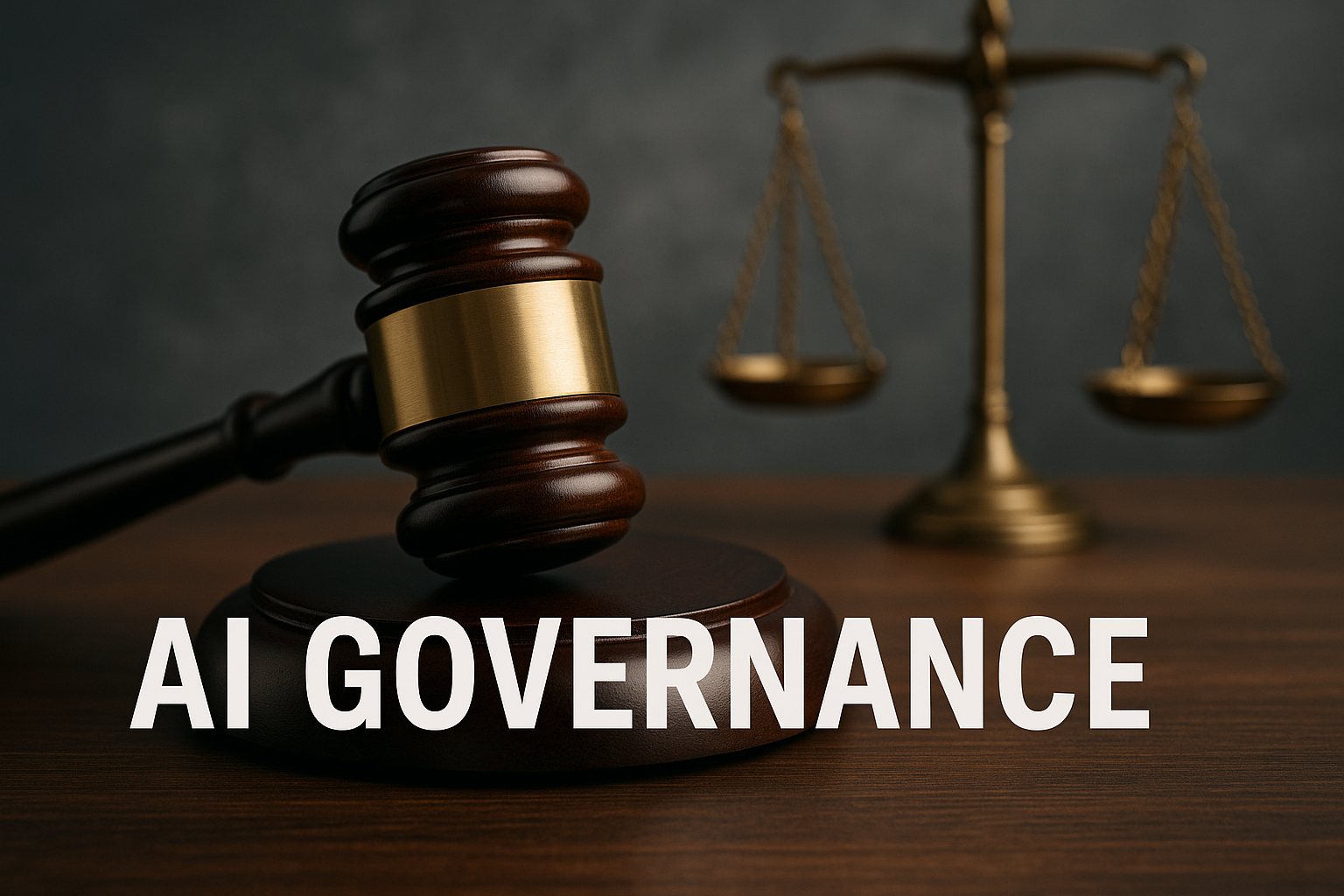|
Getting your Trinity Audio player ready... |

As artificial intelligence (AI) rapidly evolves, the world faces an urgent need for robust AI governance to ensure technologies develop safely, ethically, and equitably. Recently, China took a bold step by proposing a new World Artificial Intelligence Cooperation Organization at the 2025 World Artificial Intelligence Conference in Shanghai. This proposal highlights the growing global demand for unified frameworks to govern AI, reflecting rising concerns about fragmentation in global AI regulation and the necessity for international collaboration.
The Importance of AI Governance in Today’s Digital Era
AI governance refers to the policies, standards, and cooperative mechanisms that guide the development and deployment of AI technologies. Without a clear AI governance framework, countries and companies risk conflicting regulations, unsafe applications, and uneven benefits distribution.
Today, artificial intelligence policy varies widely. Some nations prioritize rapid innovation with minimal oversight, while others emphasize strict regulations to protect privacy and security. This patchwork of rules complicates innovation and may lead to unintended consequences like biased algorithms or unsafe AI use.
China’s initiative to establish a centralized international body underscores the need for coordinated efforts. By uniting stakeholders under one umbrella, this organization could streamline regulations, encourage responsible innovation, and promote the adoption of shared ethical standards.
China’s Proposal: A New Era for International AI Cooperation

Premier Li Qiang unveiled the plan for a World Artificial Intelligence Cooperation Organization based in Shanghai. The organization aims to bring together governments, industry experts, researchers, and international organizations to collaborate on AI governance, focusing on openness, innovation, and inclusion.
This initiative stresses open-source AI development and talent exchange, reinforcing China’s commitment to responsible AI progress. It also emphasizes expanding digital infrastructure, such as data centers powered by clean energy and advanced communication networks, to boost AI accessibility in developing regions.
By fostering international AI cooperation, the proposal seeks to bridge divides between different regulatory approaches and reduce technology gaps, especially for countries in the Global South. This reflects an understanding that responsible AI development must benefit all humanity, not just a handful of advanced economies.
The Global AI Regulation Landscape: Challenges and Opportunities
Currently, the world struggles with fragmented global AI regulation. For instance, the United States promotes a largely market-driven approach, encouraging innovation with limited restrictions but imposing export controls on cutting-edge hardware technologies critical to AI development.
In contrast, the European Union implements strict rules to ensure AI respects privacy, transparency, and human rights. This divergence creates uncertainty for multinational companies and complicates compliance efforts.
China’s approach advocating a cooperative, multilateral governance model, offers a fresh perspective. By proposing a unified AI governance framework, Beijing aims to balance innovation with safety and ethical considerations.
However, this vision faces challenges. Geopolitical tensions and competing national interests may hinder consensus. Furthermore, questions remain about how to enforce standards fairly across diverse jurisdictions.
The Role of AI Ethics Frameworks in Building Trust
At the heart of effective AI governance lies a strong AI ethics framework. Ethical principles such as transparency, fairness, accountability, and privacy protection must guide AI development.
China’s proposed cooperation organization emphasizes integrating these ethical considerations into global standards. This move is vital to building public trust and ensuring AI systems do not perpetuate biases or harm vulnerable groups.
By encouraging open dialogue and shared safety standards, the initiative fosters a culture of responsibility among AI developers worldwide.
Why Responsible AI Development Matters Now More Than Ever
The rapid advancement of AI technologies especially in areas like large language models, autonomous systems, and facial recognition raises significant social, economic, and security concerns.
Without effective governance, AI could exacerbate inequalities, threaten jobs, or be exploited for harmful purposes. Thus, responsible AI development is not just a technical challenge but a global imperative.
China’s push for a cooperative organization aligns with calls from many experts who argue that only through collective action can the world harness AI’s benefits while minimizing risks.
Looking Ahead: Steps to Strengthen Global AI Governance
To realize the vision of a truly effective AI governance framework, the international community must:
- Enhance collaboration by involving diverse stakeholders, including governments, academia, industry, and civil society.
- Establish clear and adaptable standards that keep pace with rapid technological changes.
- Promote transparency and accountability in AI development and deployment.
- Support developing countries with infrastructure and expertise to ensure equitable access to AI technologies.
- Encourage ethical AI research and prioritize human-centered designs.
China’s initiative, though in its early stages, opens important dialogue channels and sets a foundation for future agreements.







